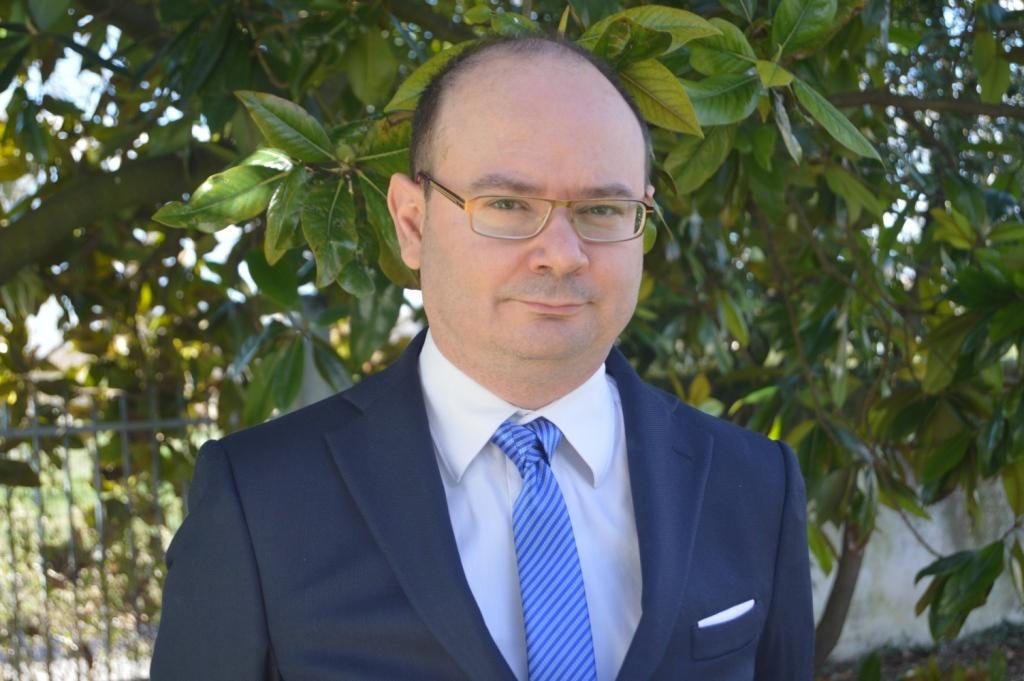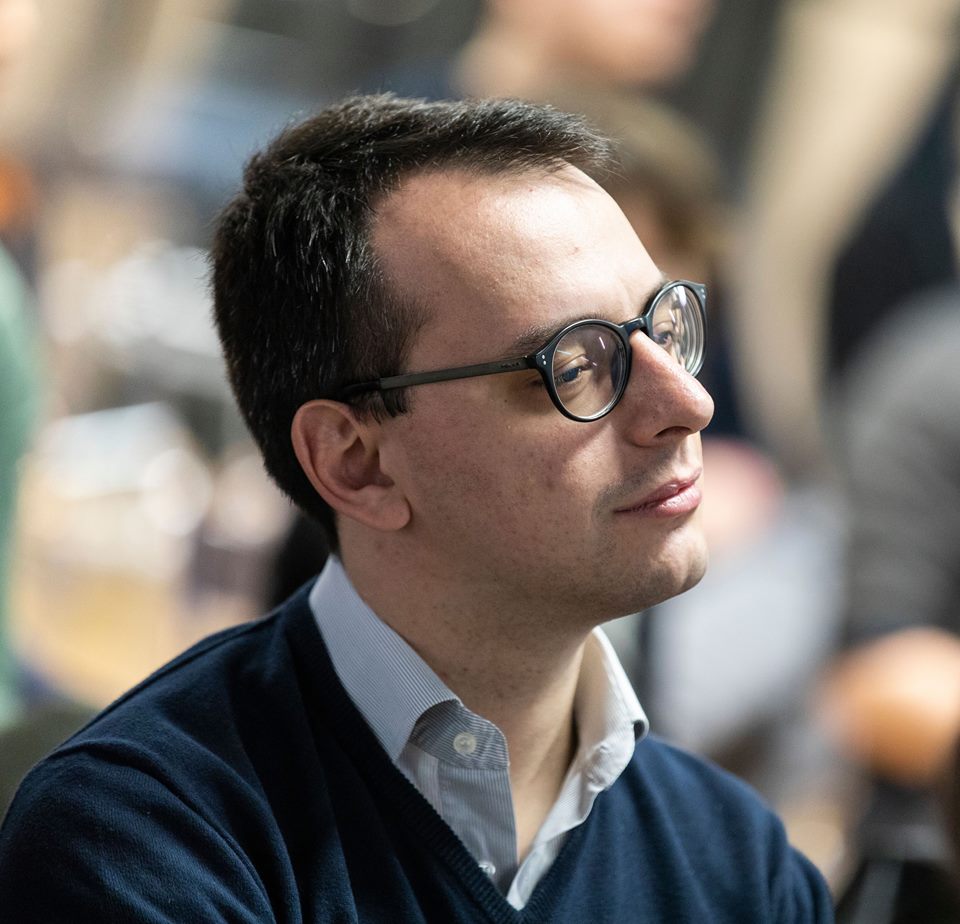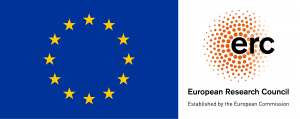Team
NeMoSanctI’s research is carried out by an interdisciplinary team of researchers with different expertises – such as religious studies, canon law, hagiography, and literature – and applying semiotic methodologies to the study of models of sanctity.
Jenny Ponzo

Jenny Ponzo is the Principal Investigator of the ERC research project NeMoSanctI. She is Associate Professor of Semiotics at the University of Turin (Italy). She is the Director of the Interdepartmental Research Center on Communication (CIRCe) and the President of the Master’s Degree Program in Communication and Media Cultures of the University of Turin. She formerly worked at the University of Lausanne (Switzerland), Faculty of Arts, and at the Ludwig-Maximilians-University Munich (Germany), Interfaculty Programme for the Study of Religion.
She is the author of three monographs, the latest of which is entitled Religious Narratives in Italian Literature after the Second Vatican Council: a Semiotic Analysis (De Gruyter 2019). Her research interests include semiotic and narrative theories, interdisciplinary methods for the study of identity, subjectivity, values and interpretative styles, Italian and comparative literature, cultural and religious studies.
Magdalena Maria Kubas

Magdalena Maria Kubas joined NeMoSanctI as an expert in History of Literature. In the ERC project she studies the representations of sanctity in the Italian narrative of the modern period.
After obtaining a Master Degree in Italian Philology (Jagiellonian University in Cracow) she received her Ph.D. in Italian Literature, Philology and History of Language at the University for Foreigners in Siena. Subsequently, she was appointed as a research assistant at the University of Warsaw and worked in the project “Litanic verse in the culture of European regions”. Her research interests are: religious literature from the Middle Ages to the Twentieth century, mysticism in literature, representations of female madness in poetry and narrative, relationships between poetry and music, and translation. She is a member of the editorial board of “Quaderni del ʼ900”.
She published a monograph (Litanic Verse. Italia, Peter Lang, Berlin 2018). Together with Witold Sadowski and Magdalena Kowalska she co-edited two volumes dedicated to European Poetry (Litanic Verse I : Origines, Iberia, Slavia et Europa Media and Litanic Verse II. Britannia, Germania et Scandinavia, Peter Lang, Frankfurt a.M. 2016).
Paolo Bertetti

Paolo Bertetti joined NeMoSanctI as an expert in semiotic analysis and media studies. In the ERC project he studies the representations of sanctity through the media and in the mass imaginary.
Paolo Bertetti has a PhD in Semiotics and Psychology of Symbolic Communication. He has formerly taught Theories and techniques of mass communication and Semiotics of Audiovisual Text at the University of Siena, Philosophy and Theories of Languages at the Polytechnic of Turin and Semiotics at the Universities of Pisa and Turin. His research interests concern Narratology, Transmedia Studies, Semiotic Theory, Semiotics of Film and Semiotics of Text. He is also interested in the genres and imagery of contemporary popular culture and is the scientific coordinator of Mufant – Science Fiction and Fantasy Museum in Turin.
Among his books: ll mito Conan (2011), Il discorso audiovisivo. Teorie e strumenti semiotici (2012), Lo schermo dell’apparire (2013), Transmedia Archaeology (2014; with C. Scolari and M. Freeman), Che cos’è la transmedialità (2020).
Former members
Marco Papasidero

Marco Papasidero joined NeMoSanctI as an expert in Hagiography and History of the Church and Christianity. His work inside the project specifically focuses on the figure of St. Gerardus Majella (1726-1755).
Marco Papasidero has received his Ph.D. in “History of euromediterranean cultural forms” from the University of Messina. He studied the hagiographical tradition of furta sacra (thefts of relics) in the medieval Italy. He is “Cultore della materia” in History of the Church and Christianity (University of Messina), and History of Religions (University for foreigners of Reggio Calabria). He had a fellowship at the General Archive of Carmelitan Order on the figure of the Bl. Aloysius Rabatà († 1499). Among his research areas: the study of hagiographic texts from a literary point of view and as sources for culture and mentality; the rites and practices of healing in the sanctuaries; the relationship between medicine and cult of saints; the cult of relics; the Marian apparitions.
He received the 2018 “Istituto Sangalli per le culture religiose” prize for his
Francesco Galofaro

Francesco Galofaro is a semiotician. He graduated in Communication Studies (MA) and holds a Ph.D. in Semiotics from the University of Bologna. His research focuses on ethnosemiotics, epistemology, Information Retrieval, and Morphodynamics, with particular regard to litanic structures.
Francesco Galofaro joined NeMoSanctI as an expert in semiotic analysis. Within the project, he carries a semiotic study of process of canonization and hagiographic texts issued by the Catholic Church. He is currently focusing on Saint Pio of Pietrelcina.
He single-authored the books Eluana Englaro (Meltemi, 2009), dedicated to the political, scientific, and ethic debate on euthanasia, and Dopo Gerico. I nuovispazi della psichiatria (After Jericho: the new psychiatric spaces, Esculapio, 2015), an ethnosemiotic analysis on psychiatric service design. He co-edited the books Morphogenesis and Individuation (with F. Montanari and A. Sarti, Springer, 2014) dedicated to Gilbert Simondon, and Il senso della tecnica. Saggi su Bachelard (The meaning of technology: essays on Bachelard, Esculapio, 2017, with Paola Donatiello and Gerardo Ienna).
Eleonora Chiais

Eleonora Chiais joined NeMoSanctI as an expert in semiotic analysis. Her research interests include fashion studies, trend analysis and the semiotic study of customs and rituals. She has an interest in the character development process too: on this subject she single-authored the e-book C’era una volta un principe azzurro (40K Unofficial, 2014), an essay about the figure of the Charming Prince between tales and mass media. Within the ERC Project she carries out the semiotic study of the construction mechanisms to build the figure of the “hero” as a landmark in different societies and contexts.
She graduated in Communication Studies (MA) and holds a Ph.D. in Language and Communication Sciences from the University of Turin. She authored several essays, in particular concerning fashion and rituals. She is contract professor in Moda e Costume (BA) and Forme e Linguaggi della Moda (MA) at the University of Turin. In addition, she is a journalist and supports the online communication of the project.
Gabriele Marino

Gabriele Marino joined NeMoSanctI as an expert in semiotic analysis. Within the project, he carries out the semiotic study of hagiographic and liturgical texts issued by the Catholic Church. He is currently focussing on the different editions of the Martyrologium Romanum (1584-2004). In addition, he runs and coordinates the online communication of the project (website, social media, etc.).
Gabriele Marino is a semiotician and digital marketer. He graduated in Communication Studies (BA) and Digital Humanities (MA) from the University of Palermo and holds a Ph.D. in Language and Communication Sciences from the University of Turin. He has been mainly dealing with music (genre theory, improvisation), online viral phenomena (memes, misinformation), design (sound design, automation, art direction), and market research (qualitative analysis, PPC campaigns), working with universities (University of Turin, IAAD, IED, IUSVE), research institutes (baba, Pomilio Blumm, Episteme), and private companies (Wherabout, Google-ETO, BitBang).
He single-authored the book Britney canta Manson e altri capolavori (‘Britney sings Manson and other masterpiecies’; Crac, 2011), an essay about music criticism, and edited the monographic issue of the international journal of semiotics “Lexia” dedicated to the notion of virality (Viralità/Virality, No. 25-26; with Mattia Thibault).
Gabriele Vissio

Gabriele Vissio joined NeMoSanctI as an expert in philosophy. His work in the ERC Project focuses on the normative aspects of the subject and its philosophical implications. He also works on public engagement activities, dissemination and exploitation of results.
Gabriele Vissio graduated in Philosophy (MA) at the University of Turin and he got his PhD Degree in Philosophy at Université Paris 1 – Panthéon-Sorbonne and at the FINO North-western Italian Philosophy Consortium. He also got a Degree in Religious Sciences at the Theological University of Northern Italy (Fossano, Italy). His fields of experience are normative philosophy, philosophy of science (with particular reference to the approach adopted by the tradition called “historical epistemology”) and French contemporary philosophy. After his PhD he was also involved in research and social innovation European programmes, such as the INTERREG-ALCOTRA project“#Com.Viso” (bit.ly/2u4bI1X) and the Erasmus + KA2 project “Together”.
He authored several essays about different issues in contemporary philosophy, especially about normative philosophy. He recently edited the book Terapie dell’umano. Filosofia, etica e cultura della cura (Pisa 2018) and the Italian edition of R. Ruyer, Neofinalismo (Milano-Udine 2018; with V. Cavedagna and U. Ugazio).
Eleonora Rai

Eleonora Rai joined NeMoSanctI as an expert in the History of the Church and Christianity (16th-20th centuries), and Canon Law.
After obtaining a PhD in History (2014) with a program jointly convened by the University of Milan (PhD Program: Studi storici e documentari. Età medievale, moderna e contemporanea) and the École pratique des hautes études (PhD Program: History, Texts and Documents), she was appointed as a postdoctoral fellow at Fondazione Fratelli Confalonieri (Milan), and thereafter had a fruitful international experience in the Australian Academia. Here, Eleonora was firstly appointed as a Research Associate within the ARC Centre of Excellence for the History of Emotions (University of Western Australia), working on the Suppression of the Society of Jesus, and Italian Jesuit missions in the Early Modern Age; then, as Assistant Dean at Newman College (University of Melbourne), where she also taught several subjects for Bachelor’s students. Beforejoining the University of Turin, she worked at Deakin University (Melbourne) on a project at the intersection of Catholic and Legal History.
In 2013, Eleonora published a monograph (La Santa Parola. Le veggenti di Pusiano e i loro seguaci, Milano: Edizioni Biblioteca Francescana, 2013), which retraces a fascinating case of female prophecy in 19th century Italy. She is currently working on both recognized sainthood, through exploring causes for canonization, and simulation of sanctity (e.g. cases of alleged stigmatics).
Andrea Pennini

Andrea Pennini joined NeMoSanctI as an expert of archival research and History of Modern Church and Legal History. His work inside the project specifically focuses on the canonization processes.
Andrea Pennini graduated from the University of Turin and earned his PhD in historical sciences from the University of Eastern Piedmont (Vercelli) in 2012. He studied the “social” sanctity in XIX century Piedmont, and particularly the life and works of Juliette Colbert marquise of Barolo and of her husband Carlo Tancredi. After a postdoc at the Department of Jurisprudence of the University of Turin, where he was also attributed the title of cultore della materia in History of Law and in History of the Political Institutions, he now collaborates with the Department of Philosophy and Educational Sciences.
His publications include two monographs (Con la massima diligentia possibile. Diplomazia e politica estera sabauda nel primo Seicento, Rome: Aracne, 2015, and Nulla standoci maggiormente a cuore. Ordini religiosi e politiche territoriali nel Piemonte della Restaurazione, Rome: Carocci, 2017) and several academic essays about the Savoy diplomatic networks and the historical events regarding the Religious orders in the Kingdom of Sardinia from the French Revolution tothe Restoration.

